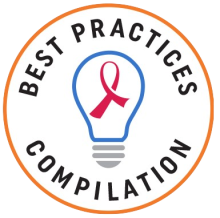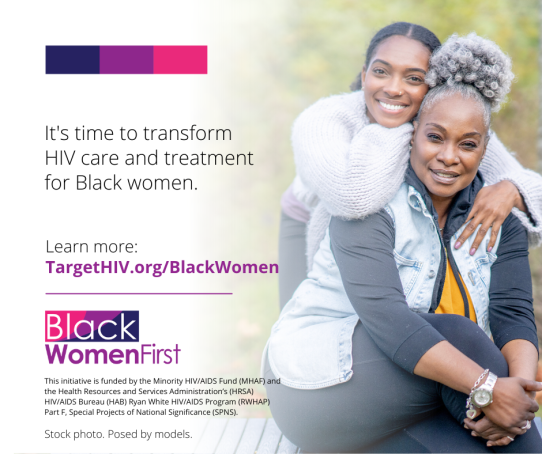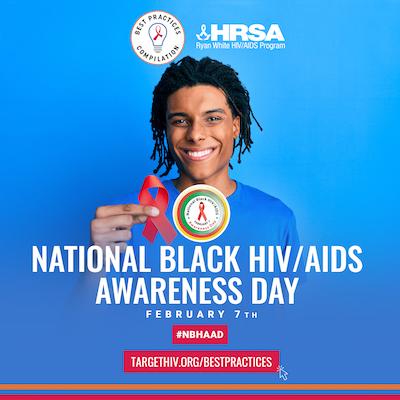
Black/African American individuals comprise nearly 45% of the Ryan White HIV/AIDS Program's (RWHAP) 566,846 clients, according to HRSA's RWHAP Annual Client-Level Data Report, 2022 (HRSA, December 2023).
The 2024 theme for National Black/African American HIV/AIDS Awareness Day is Engage, Educate, Empower: Uniting to End HIV/AIDS in Black Communities. Read HRSA Commemorates National Black HIV/AIDS Awareness Day.
According to the report, in 2022, 87.1% of Black/African American individuals receiving HIV medical care from HRSA's RWHAP were virally suppressed, compared to 63.3% in 2010. Over the time period 2010 through 2022, viral suppression rates of RWHAP clients have steadily and significantly increased, overall and across all racial/ethnic populations. The overall improvement was 69.5% to 89.6%.
As with all RWHAP populations, viral suppression rates are less robust among RWHAP clients who are younger, experience temporary/unstable housing, and lack health insurance, although comparable improvements have been recorded across all of these population groups.
Black/African American HIV Care Interventions
Use our search and filter feature for resources focused on Black/African American populations as well as the topic page on Black/African Americans with HIV.

HRSA has funded and number of TA and training projects that focus on developing HIV care interventions targeting Black/African American populations. This "pipeline" of resources is assessed for inclusion in the Best Practices Compilation of interventions funded by HRSA's RWHAP that have demonstrated effectiveness at improving client HIV outcomes.

One of the newest such projects is the Black Women First Initiative (BWF). This project will soon release replication materials for the delivery of evidence-informed interventions that, when bundled together, focus on: enhanced case management, stigma reduction, trauma-informed behavioral health care, intimate partner violence, self-efficacy, health literacy, and TransLife care to support continued engagement in HIV care and improve health outcomes among Black cisgender and transgender women.
Examples of interventions focused on Black/African American populations, currently included in the Best Practices Compilation, include:
- The Alexis Project, which uses social network recruiting and engagement, peer navigation, and contingency management to reach and engage transgender women of color with HIV who were not engaged in HIV care.
- The Village Project, an intensive case management-based intervention that harnesses peer navigation and integrated behavioral health services to improve the health outcomes of young Black gay, bisexual, and men who have sex with men.
- Project CONNECT engages Black men who have sex with men (MSM) with HIV into medical care through early orientation to the clinic, relationship building, and enhanced personal contact.
Clinical Quality Improvement
HRSA's Center for Quality Improvement and Innovation (CQII) initiated an Impact Now Collaborative national quality improvement initiative to maximize the national viral suppression rate. Earlier CQII projects include an initiative to mitigate disparities associated with social determinants of health (create+equity Collaborative) and the end+disparities ECHO Collaborative, which wrapped up work in 2020.
Ryan White Conference Presentations: African Americans
Access our Conference Presentations database for sessions from recent Ryan White Conferences, like the session at the 2022 National Ryan White Conference on HIV Care & Treatment, Positive Love: Improving Health Outcomes of Young, Black MSM with HIV in the Deep South and No Progress without Us: PrEP and Historically Black Colleges and Universities.
